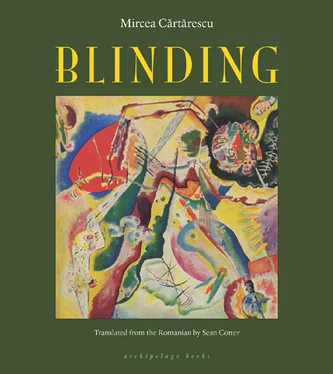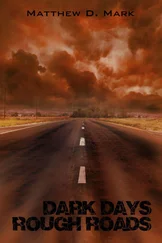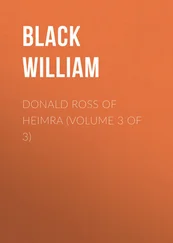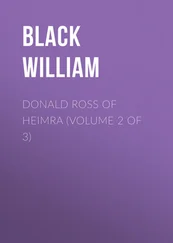IN THE end I would sink into sleep, wrapped in a cocoon of fraying dreams. I melted into sleep like sugar into water. I slid like a gear in the clutch of forgetting. I started awake, sometimes so violently that it seemed like everything inside me rattled. Other times, I fell in a nosedive like an old elevator plummeting down an endless well. Horrifying snouts and masks — torn cheeks, eyes hanging from their sockets, brains exposed — appeared for a second, then melted away with the howls of animals in agony. A timid voice whispered my name, very close to my ear. Slowly, a lather of word-images flooded my retinal screens, and someone composed stories and scenes from the aleatory marks, the way I would, from the stencils on the apartment wall or the tile on the bathroom floor. A chiromancer traced his finger, with a fat gold ring at its base, over the palm of my dream, interpreting and prophesying, slowly wading through the chaotic lines, then suddenly circling his nail around a mound of limpid skin, the glassy cover of thumping veins and arteries. Acrid delirium, a stew of colored threads, garbage swept into heaps — and unexpected, sweeping Altdorfer scenes, oceans and ships, blue mountains and amber beasts, battles where every button and lily on the banners and every freckle on the soldiers’ faces was visible, like under a blinding magnifying glass. Ivory castles, abstruse, with twisted columns and round windows like in Monsú Desiderio. Cells like Piranesi. Twilight collapsed over abandoned buildings, severe and singular — I circle around them in a slow flight, passing the mascarons below the roof, alternating with glowing windows, where “HARDMUTH” is written. In a night coagulated like blood, marble itself turns brown, its geometry emphasized by small, red stripes. These kinds of stripes and bands of evening light hem the acanthus leaves on immense capitals, stone snakes in gorgons’ hair, the nipples and pubic hair of living, rickety Atlases who hold up balconies. I pass, tiny as a flea, under immense porticos, into halls with beautiful mosaic floors, under cupolas high as the stars. I wander through sinuous labyrinths, leaving through crystal doors, to sink again into aphasia, misunderstanding, delirium, and dejection. Jungles with limpid springs, swamps with visions of eternal citadels: such was the cartography of my dreams. And in my dream life I remembered earlier dreams. I knew: I had been in that pink building before, the one that seemed made from a child’s blocks. I had already held a completely transparent spider, spread across my palm, heavy as a sphere of quartz, with only its emerald, pulsing sack of venom visible in its stomach. I had already squinted, blinded by the flame of sunrise, in one of the canals of this impossible Venice. Pipes ran between dreams, they were connected the way buildings in Bucharest were connected with each other, the way each of the days of my life, at a distance of years or months, or one night alone, was bound, by imperceptible threadlike tubes, to all of the others. But the catacombs, tubes, cables, wires, or passages were not all equally important. The dream highways would abruptly pour onto reality’s thoroughfares, making constellations and engrams that someone, from a great height, could read like a multicolored tattoo, and someone from a great depth could feel on his own skin, like the sadistic torture of tattooing. Sometimes I woke in the middle of the night with one hand completely numb, cold as a snake’s skin and strangely heavy, a soft object I could move only with my other hand. In my mind I saw it black and bruised, and I rubbed it, with the same incomprehension and terror I would have touching an anaconda on the mosaic of its back, in the absurd hope that somehow I would feel it become part of me. When I let it go, it fell back onto the pillow, and only when I pushed and pulled it did the cold skin find its power, the inert flesh begin to prickle, and I fill the numb glove again. Its lace of nerves, veins, lymph pathways and tubes of psychic energy came back to life, and soon my corporeal system was once more complete.
My dreams also pulled me into the past. For almost two years, before they built the apartments across the street, I often dreamed I was climbing mountain peaks to dizzying heights. Usually, inside the black rocks, thin as skyscrapers, there were stairs and places to live, but I preferred to scale their outsides, to grab stone after stone, always higher, until I reached the fog-covered summit. Then the crags and towers disappeared, and the dream took me through sunken spaces, wet with emotion, through buildings and rooms I recognized without knowing where they were, or when I had been there, or what had happened to me to now cause this hysterical sobbing, this fainting, and the inhuman sadness of living in these rooms. I dreamed of buildings at the bottom of cold, clear water, where I could breathe, but which resisted my advance. Through diffuse light, my hair fluttering in the currents, I moved toward massive ruins, toward blue and yellow walls thousands of meters deep, at the bottom of the water. Red crabs scuttled in the sand, and here and there a fish shuddered in front of a window. The façades were rotten and ruined. I penetrated through swollen doors crusted with snails, I penetrated interiors full of swirling water. How high the rooms were! They were eaten away with decay and melancholy. Embroidered tablecloths floated over the buffet, a sea urchin rose out of a red crystal cup, and coral grew on the worn marshes of carpet, infested with krill. An octopus nested in the toilet, and a glittering dust swirled in the sink. I explored every room, trying to determine where I was, how I knew the large radio with ivory knobs and a magic eye, the sewing machine with a pedal, corroded beyond recognition, the tapestry with two wool cats, framed with the flowering of a million flickering worms. Even the chairs, toppled and tumbled by the currents, seemed familiar. Yes, I had once sat between their legs that slanted toward the sky, I had rocked there, during yellow spring evenings. A loneliness no person can experience in real life, one that could break your bones like a wild animal, tore at my internal organs. The dream would end when I found, in the kitchen, seated at the feet of the old cooler, a large cadaver rocking in the currents. A woman devoured by salt covered the entire cement mosaic floor. Her dress had melted and tangled with seaweed, like paste, like a coffee-colored gelatin. The stove had crusted into her hip and her hair was stuck to a drape with butterfly ribbons. The great statue, wrapped in rags, was four or five meters tall.
I would awake shaken, frustrated like an amnesiac who cannot remember who he is. I tried to relive the vast, dead areas of my mind. A few cardboard buildings rose up in the petri dish of my thalamus, there between my hippocampus and my tonsils. Over them was the great aurora borealis of my cortex. I recapitulated: from birth to age two — on Silistra, a slum street in Colentina, from age two to three — the apartment in Floreasca, near a garage; from three to five — the house, still in Floreasca, but on a beautiful, quiet side street, named for an Italian composer. Then, on Ştefan cel Mare, in the tall building next to Miliţie. These were the forgotten compartments of my spiral shell, built by my mind, one after the other, like a line of ever-larger skulls, and left behind to decay like molars, down to the bloody rot of their roots. I knew that I had lived in those places. I retained some images, but no experiences, no emotions, nothing real. The three or four buildings were like the deformed teeth of my mother’s dentures, untouched by the nerves or irrigating threads of her veins and arteries. Plastic, cheap, stupid plastic. I imagined that their doors were only etched on the walls, that their interiors were full and massive, like fillings in praline candies, and that, therefore, everything was a crude, fairground imitation. But I searched around these edifices more and more stubbornly, because they still were my only landmarks. I tried to reconstitute my cerebral animal in their strange dance through time, touching the bumps of the buildings, the housing of its successive skulls, built from calcium spittle. Patiently, the flesh of my mind built rooms and roofs, scenes and deeds. Growing, it left them dry and empty like the yellowed skulls of dogs on fields, or like the clean, rubbery inside of a doll’s head.
Читать дальше












